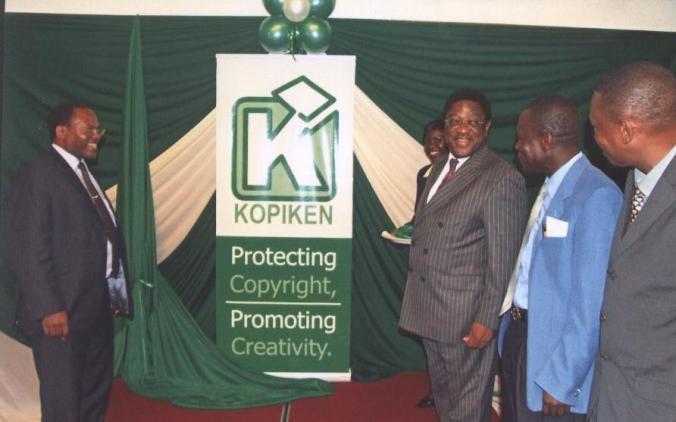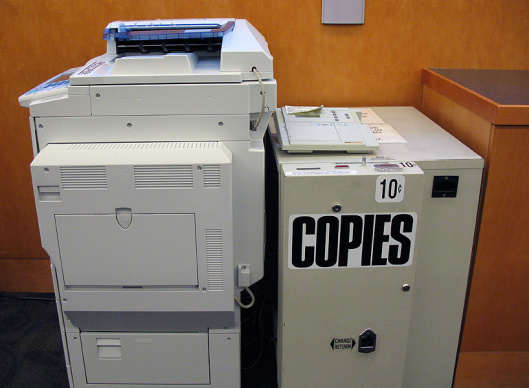
The subject of this article is to critically analyse some of the questionable statements made by KECOBO in the latest edition of its newsletter, “Copyright News”. This particular edition is themed: Collective Management Organisations (CMOs). As many may know, there are currently four registered CMOs in Kenya namely (from oldest to youngest): the Music Copyright Society of Kenya (MCSK), the Reproduction Rights Society of Kenya (KOPIKEN), the Kenya Association of Music Producers (KAMP) and the Performers Rights Society of Kenya (PRiSK).
In a previous article here, this blogger commented on KECOBO’s poor performance in licensing and supervision of CMOs. Therefore this recent publication by KECOBO is useful in identifying certain areas of concern in the regulation of CMOs.
Take for instance, the statements on page 4 made by KECOBO’s second-in-command, Mr. Edward Sigei:
In the last few years, there has been some progress and a few of setbacks in this area [regulation of CMOs] as can be seen elsewhere in this publication.
One wonders why no mention is made of KECOBO’s deregistration of MCSK in 2011 and the ensuing court battle spanning over a year. One may also be curious to know why KECOBO fails to address the increasing reports of anti-competitive and/or unethical practices by the three CMOs operating within the music industry namely, KAMP, PRiSK and MCSK. How does KECOBO propose to deal with this emerging issue?
In this regard, this blogger submits that competition between CMOs may provide the solution to increase their productivity and efficiency. The one society per category of works rule entrenched in the Act ought to be amended so as to allow other entrants in the collective management business. This move would ensure that members and users alike benefit more from the collective administration of copyright.
Currently, there is a popular push for further reform in the sector to strengthen the oversight role of the Kenya Copyright Board in the absence of vibrant membership within the CMOs.
The absence of a vibrant membership within CMOs is due to ignorance. CMO members may not be fully aware or fully appreciative of their power as shareholders in the CMO. The creation of this awareness or appreciation among these members ought to be stated openly and clearly as an integral part of KECOBO’s outreach and sentisation agenda in collaboration with the CMOs.
Users generally complain of arbitrary license hikes to already high tariffs and they are subsequently demanding controls. Small kiosks and shops are being threatened thereby.
One of the novel features of the revised 2001 Copyright Act was the Competent Authority whose mandate includes reviewing CMO tariffs. However KECOBO has not pushed hard enough or fast enough for the Government to set up this Competent Authority. This Authority, once fully in place, would act as a Copyright Tribunal to hear and determine cases brought against CMOs by users of copyright works.
Drawing from this campaign to reform the law and recent developments globally, some of the legislative interventions under consideration include:
• Empowering the Kenya Copyright Board to order forensic or other audit on CMOs based on credible information
Who is to bear the costs of KECOBO’s decision to order forensic and other audits of CMOs where these audits are treated separately from the normal audits carried out by CMOs in every financial year? Will the members of the CMO still have a final say in the firm of auditors to be appointed?
• Introduction of the Attorney General’s power to approve and review tariff and to exempt small businesses from time to time.
Why not empower the AG to examine the entire licensing system including terms and conditions of license agreements as well as licensing procedures?
• Empower the Kenya Copyright Board to disband CMO Boards in cases of gross mismanagement and call for fresh elections and/or disqualify outgoing Board members.
Such a statutory power to disband CMO Boards by KECOBO ought to be carefully worded and exercised sparingly. For instance, in section 76 of Uganda’s Copyright Act, the Registrar of Copyright is empowered to order the cancellation of registration of a CMO after the findings of ad-hoc committee of inquiry or inspection or an application made by two-thirds of the members of a CMO.
(…)
• Reconsider utility of Section 38(2) of the Copyright Act in view of the rising cases (sic) alleged harassment arising out of its enforcement.
This section deals with the restricted act of public performance in copyright and related right in a musical work and sound recording, respectively. This section creates the offence of wilfully causing a public performance without the authorisation of the rights holders in the works. It is this blogger’s opinion that rights holders or their respective CMOs have the right to enforce this provision and pursue criminal action against all infringers under this section. Such infringers include all commercial premises, public service and commercial vehicles, telecomunications companies, broadcasters, content service providers and premium rate service providers, operating countrywide.
However CMOs lack trained prosecutors to deal with copyright infringement cases brought forward by CMOs as complainants. In 2012, the Director of Public Prosecutions appointed five (5) individuals employed at KECOBO to serve as public prosecutors for the purposes of cases arising under the Copyright Act. These prosecutors are required to handle all copyright infringement cases countrywide, including infringement cases brought by CMOs. To date, KECOBO has not provided any guidance or assistance to CMOs in prosecuting cases arising out of section 38(2) of the Act.
Let’s now consider some of the statements made by the KECOBO Chief Executive, Dr. Marisella Ouma on the subject of CMOs in Kenya.
On page 5 of the Newsletter, she states:
Their [CMOs’] licences are renewable annually subject to each CMO fulfilling their obligations under the Copyright Act, Companies Act as well as the implementing regulations.
From a practical point of view, the duration of the CMO license ought to be reviewed. One calendar year is too short a period to adequately assess the performance of a CMO. This reality is compounded by the statutory requirement to submit annual reports and audited accounts. How does KECOBO evaluate the performance of a CMO throughout an entire year on the basis of one single report submitted at the end of the licensing period?
A cursory look at the license conditions in other African countries is also instructive. In South Africa, a CMO license is granted for 5 years, whereas in Nigeria, the CMO license runs for 3 years and in Uganda, license duration is perpetual.
However, if KECOBO is adamant on retaining the one year license duration, the Act ought to be amended to require at the very least semi-annual if not quarterly reports from the CMOs.
The legality of KECOBO’s CMO Guidelines and Licensing Agreement for CMOs is worth mentioning. These two documents developed by KECOBO have no basis in the Copyright Act and yet they continue to be enforced against CMOs. Both CMOs and other key stakeholders ought to have a say on how KECOBO exercises its public powers in licensing and supervision of CMOs.
The collection of royalties has to be done within the provisions of the laws of Kenya. Thus the Collective Management Organisations have no right to confiscate any property such as radios, TVs and other equipment from users unless they have followed the due process for instance obtained a warrant or a court order to detain the property.
This blogger respectfully disagrees with this position. Section 39(2) states clearly that in addition to the copyright inspectors appointed under the Act, any police officer may perform the functions of an inspector under the Act. Section 41 vests powers of seizure on inspectors and section 42 deals with the powers of arrest. For the offence relating to public performance under section 38(2) of the Act, the prosecution must produce in court the device used to cause the public performance.
Looking generally at the Newsletter’s content, it may be of interest to note that the interviews with the CMO leaders do not disclose certain key information that would be of great use to the public. Apart from MCSK, none of the other CMO interviews deal with the issue of royalty distribution. The facts and figures on distributions vis-a-vis expenditures is an important area of collective management that ought to have been addressed across all CMOs interviewed.
Still on the question of partial interviewing, the responses by the star interviewee, Mr. John Katana are also questionnable. Firstly, this interview totally fails to address the responsibility of CMO members to hold their CMO accountable and the powers of members to take charge and make decisions on the governance and operation structures of their respective CMOs.
Secondly, the interview blatantly suggests that there is a standard worldwide cost-royalty ratio of 30:70 whereby 70% is paid to musicians and 30% is used for administrative costs. This blogger would be interested to know the source of this assertion.
Finally, the interview conveniently fails to disclose that the interviewee is a Board Director at KECOBO. Therefore any reasonable reader of the newsletter would read in between the lines of this interview and see clear statements made by KECOBO to advance its own agenda on regulation of CMOs.
In the final analysis, the total value addition of copyright-based industries to Kenya’s Gross Domestic Product (GDP) is estimated to be over Kshs. 85.21 Billion. It is submitted that this fact underscores the important role played by KECOBO as the state agency responsible for the administration of copyright and related rights in Kenya. Part of this weighty mandate is the licensing and supervision of Collective Management Organisations (CMOs) who represent the bulk of Kenya’s creators and copyright owners.









